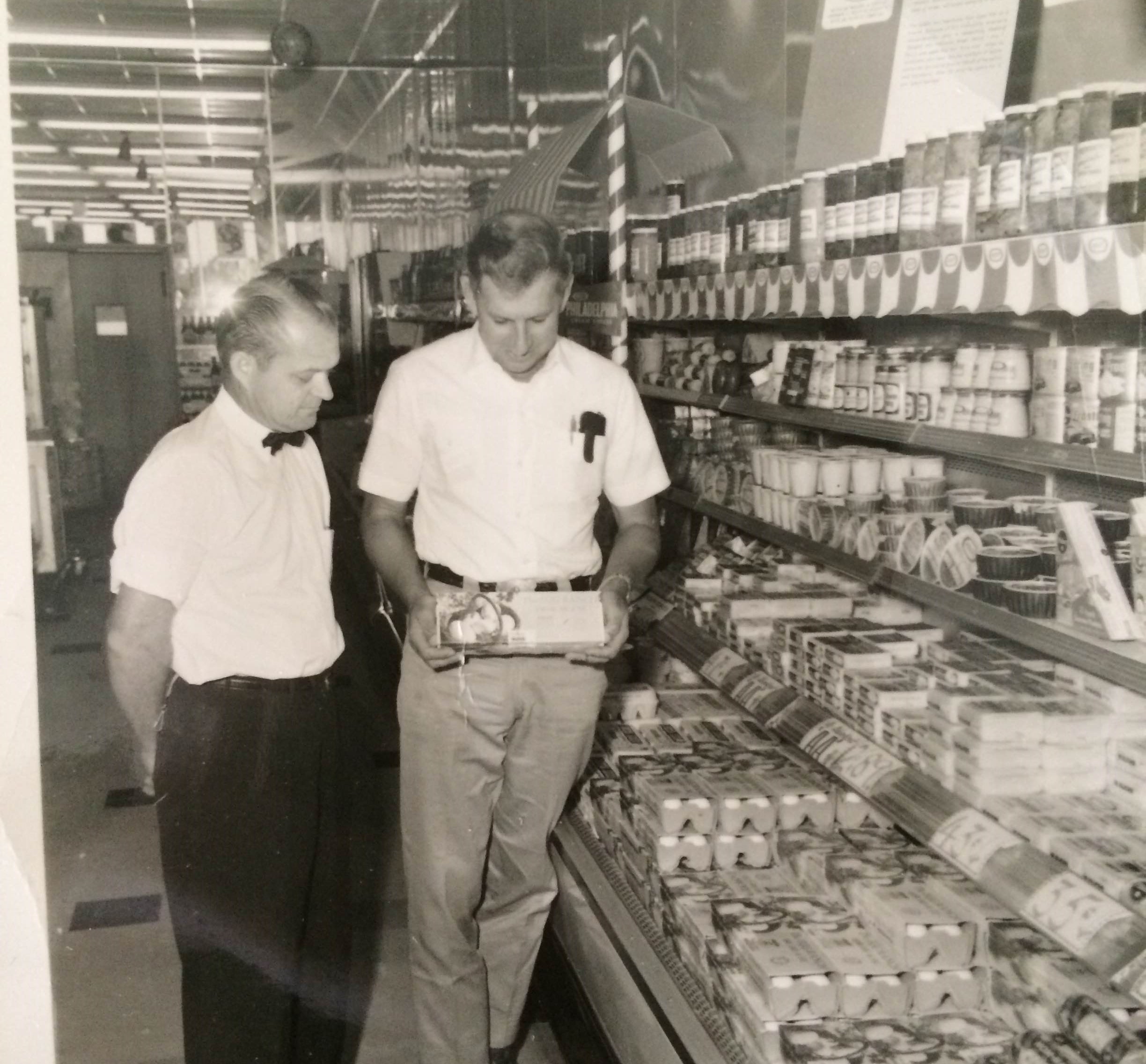Photo shows James Hutchens (left) assisting a customer on the first day of business at Giant Foods.
CULLMAN – When James Hutchens climbed in the back of a truck with his fellow workers in the Civilian Conservation Corps in 1938, he didn’t know where he was headed. At 17, he left his family to work in a program as part of FDR’s New Deal, and was transported to a town where he would spend the majority of his life.
Hutchens made $8 per month for himself, and $30 per month was sent to his family.
“I think there was four traffic lights in Cullman when I got here,” Hutchens said, laughing. “The CCC camps were to give people something to do, something to earn their money to send back to their family. The reason they sent us to Cullman was because Cullman was the biggest farming county in the state.”
And work he did. Hutchens and his camp-mates were responsible for building the infrastructure that Cullman has grown up on, both in the county and in the city. In fact, the presence of kudzu in Cullman (although it has become a nuisance now) is due to it being brought into the county by Hutchens and his co-workers.
“We planted it on banks of the roadsides that were washing away,” he said. “And it did the job.”
The camp where Hutchens and his fellow CCC workers lived was located next door to Childhaven, which has since become a Cullman landmark.
Anyone who knows Hutchens will tell you how much he values work, hard work, and quality work. While this work ethic was certainly honed during his years in the CCC camps, it was in him to do as well of work as he could. His wife calls him a perfectionist, but he doesn’t buy that.
“I’ve always thought, well, if you’re going to do something, why not do it just as best as you can? You know?” he asked, rhetorically.
When Hutchens completed his work with the CCC he was no longer obligated to stay in Cullman. When asked why he didn’t just leave the county where he’d been working and head back to his birthplace of Walker County, he responded simply, “Well, I met a girl in Cullman.”
Hutchens attended Wednesday night services at Seventh Street Baptist Church and Thursday night services at West Methodist Church.
“There was this little girl, Mildred, at church with her friends. Well, I asked her if I could walk her home,” he said. “Then I asked her if I could take her to church the next week.”
After they had dated about eight or nine months, Hutchens said to Mildred, “Why don’t we just get married?” And she said, “Well I don’t know why not.”
James and Mildred Hutchens started their life together. Years later, in 1961, Hutchens would open a store that has made a huge lasting impact on the Cullman community.
Giant Foods opened at the current location of Books-A-Million in 1961, and Hutchens employed local young men and women, instilling in them a work ethic that has helped them to become leaders in the Cullman government, local business owners, and in one case, the owner of the largest trucking company in California.
Many years later Hutchens built a greenhouse for personal use. When he began to realize the potential of the flower business, he built one greenhouse after the other, each of them 96-feet long. He built the greenhouses until he had 10, planting 5,000 mums per week, and shipping flora all across the state.
Hutchens even had a hand in the start of Cullman’s East Side Baptist Church.
“Brother Faulkner came to me and said, ‘What do you think about us starting a church in east Cullman?’ And so when he started it, we started going there. It was in a tent.” Hutchens is a charter member at East Side Baptist Church.
Hutchens has lived in Cullman, planting businesses and trees, since 1938. Building relationships through work and kindness. Though he would never say it himself because of his humility, Hutchens is a pillar of the Cullman community, even for people who may have never met him.
Hutchens’ impact on Cullman for the past 70-plus years is massive. One thing all Cullmanites can be sure of: Cullman is a place built by humble men like Hutchens, and the gratitude towards them is as incalculable as their impact.



























